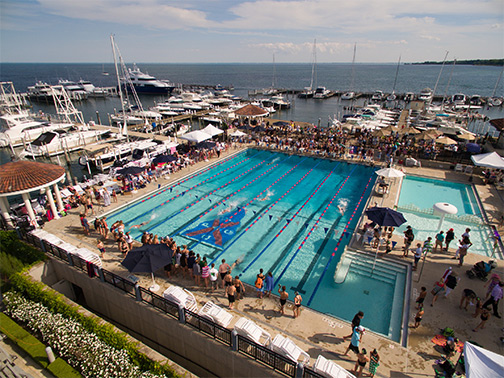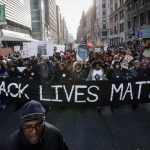The Trump administration sent multi-million dollar business loans to the president’s pals, billionaires and country clubs, while federal rescue loans linked to the coronavirus impact awarded nearly 200 Michigan businesses with funding of up to $10 million each.
The Paycheck Protection Program (PPP) was supposed to assist mom-and-pop businesses during the virus-induced shutdowns but data released by the Treasury Department this week shows that large corporations – some with political ties to the White House – benefited from federal funding to the tune of five times what was received by typical small businesses.
According to MLive, nearly 20,000 Michigan businesses have received at least $150,000 in largely payment-free loans from Treasury during the ongoing pandemic. Of those, 185 Michigan businesses were awarded with federal aid between $5 million and $10 million from the fund designed to help keep workers employed during the coronavirus pandemic.
Nationwide, businesses tied to President Trump’s family and associates stand to receive as much as $21 million in taxpayer-funded government loans, according to news reports. While it’s easy for recipients to avoid paying the money back, big amounts were extended to Washington lobbying shops, high-priced law firms and special-interest groups.
“My 1,000-foot takeaway is that the government was handing out free money and the line went around the corner,” Aaron Klein, an economist at the Brookings Institution in Washington, told the New York Times. “This is not your mom-and-pop shop on Main Street.”
Well-heeled state businesses cash in
In Michigan, some companies that serve a wealthy clientele received lucrative funding from the Trump administration. Those include:
- Grosse Pointe Yacht Club (pictured above), $1-2 million
- Plunkett Cooney law firm based in Detroit, $5-10 million
- Oakland Hills Country Club, a private golf club located in Bloomfield Township, $1-2 million
- Bay Harbor Resort near Petoskey, $1-2 million
The numbers are far from precise because the PPP figures released on Monday, in the face of bipartisan criticism about a lack of information, are listed in broad categories that consist of ranges of loan amounts: $150,000 to $350,000; $350,000 to $1 million; $2 million to $5 million; or $5 million to $10 million.
Notable Michigan businesses in the $5-10 million range include Albion College, Bell’s Brewery, Gardner-White Furniture Co., Interlochen Center for the Arts, JK&T Wings Investments (a Buffalo Wild Wings franchisee) and the Michigan Education Association.
The MEA, an East Lansing-based labor union with 285 employees that represents teachers, faculty and education support staff statewide, said it received a $6.4 million loan.
Some smaller loans have ties to high-profile politicians. Jackson-based Orbitform, a company owned by state Senate Majority Leader Mike Shirkey, R-Clarklake, received $1 million to $2 million
Detroit’s Renaissance Global Logistics also was awarded with $1 million to $2 million in loans. U.S. Senate candidate John James, R-Farmington Hills, is the CEO of the business.
The political implications of all this are unmistakable as pollsters detect an achilles heel for Trump sparked by the PPP issue after word leaked out in May and June about large corporations receiving substantial funds. While most Americans have landed on a decidedly pro-Trump or anti-Trump position, focus group discussions with persuadable voters indicate that reported abuse of the $660 billion PPP program serves as a significant concern for the president’s campaign team.
Beyond the numbers, Trump fired the federal inspector general assigned to keep tabs on how the money was spent. Treasury Secretary Steve Mnuchin has spent weeks claiming that, despite previous administration promises of transparency, the list of PPP beneficiaries is not public information. On Capitol Hill, a bipartisan group of lawmakers demanded that the Treasury come clean.
Administration’s stonewalling hit a brick wall
Mnuchin’s stonewalling hit a brick wall when several new organizations filed suit under the Freedom of Information Act (FOIA) to demand release of the materials.
The data that was unveiled shows that nearly 5,000 businesses received individual loans between $5 million and $10 million through the PPP program, which was created to preserve small business jobs during the coronavirus pandemic.
Among the beneficiaries were a chic sushi restaurant at the Trump International Hotel in Washington; Kanye West’s apparel company, Yeezy, which has a worth of $3 billion; and President Trump’s longtime personal lawyer. The PPP bounty also provided finances to more than 400 country clubs and golf resorts.
The program provides 1% loans, administered through banks, that can be forgiven entirely if companies use the money for basic expenses such as payroll, rent and utilities. It has been extended into August by the president.
Among those loan recipients associated with the White House is Jared Kushner, the president’s son-in-law and top presidential adviser. Three Kushner family businesses got up to $3 million and, overall, several companies connected to Kushner could get upward of $6 million.
A company whose largest shareholder is Trump campaign manager Brad Parscale received nearly $800,000 from the federal coronavirus relief fund for small businesses.
CBS News reported that Phunware, a company that built the Trump campaign online app, got a $3 million loan from the PPP.
A Dallas evangelical megachurch whose pastor has been a vocal supporter of President Trump was approved for a forgivable loan worth $2 million to $5 million.
The administration said 86.5 percent of the loans were for less than $150,000, so the data that was released captured only a small fraction of businesses that tapped funds. So far, banks have made about 5 million federal loans through the program, with an average size of $107,000.
What is known is that 120,000-plus Michigan companies and organizations benefited from the loans.
Ultimately, the public may never know the identity of most taxpayer-funded PPP loan beneficiaries because the administration has refused to release details on loans under $150,000, which represents the vast majority of borrowers.






Of course, Soros related groups got tens of millions from PPP.
https://freebeacon.com/coronavirus/soros-backed-liberal-groups-raked-in-tens-of-millions-from-ppp/?utm_source=actengage&utm_campaign=FreedomMail&utm_medium=email
Could you tell us exactly what it is that is wrong with George Soros? Just because one person donates to an organization, that makes the whole organization bend to that persons will? Could that be said about the other side also?
Just tell the world what it is that is so bad about this man. No one has ever fully explained.
Thanks for this reporting. Most sites are using the lower amount, saying that Shirkey and James only got $1 million in PPP loans. I wonder what the smaller businesses think of this.